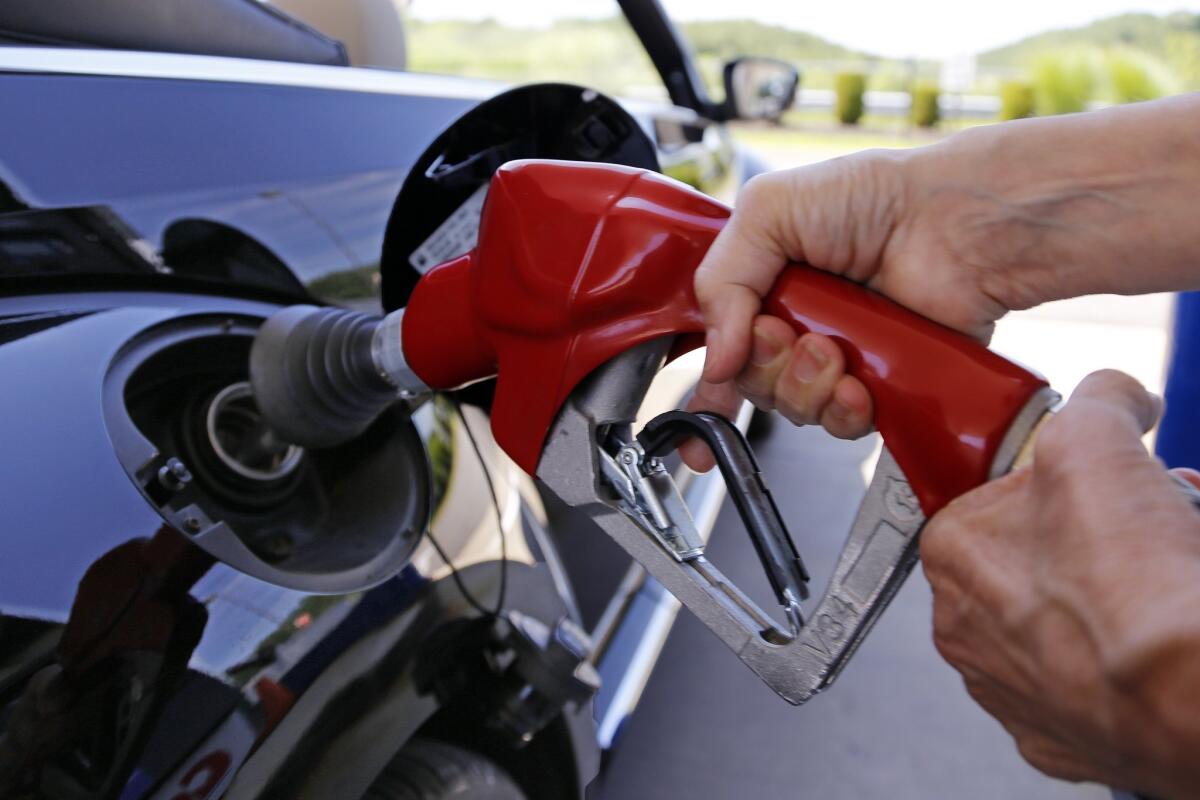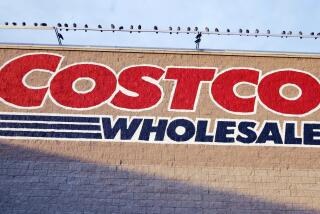Consumer group accuses refiners of keeping California gasoline prices unusually high

A consumer advocacy group accused oil refiners of intentionally keeping California’s gasoline prices higher than in the rest of the nation to bolster profits, despite growing inventories and falling wholesale prices.
Consumer Watchdog argued Thursday that per-gallon pump prices should be lower than the current $2.69 statewide average — $2.72 in the Los Angeles area — about 60 cents higher than the nationwide average, as measured by the AAA daily price survey.
Jamie Court, president of Consumer Watchdog, said the oil industry has attributed high retail gasoline prices to high state taxes, fees and California’s special blend of environmentally friendly fuel — factors that state regulators also point to as contributing to expensive gasoline. But Court believes the problem stems from oil industry price manipulation.
The state’s wholesale gasoline prices are “the cheapest in America but California gasoline is more expensive,” Court said. “We have a problem not with higher production costs or an isolated market but with refiners.”
In response to Court’s assertions, the Western States Petroleum Assn. defended its long-held position that California’s unique market is the cause of higher gasoline prices.
“Repeated investigations and independent analyses have consistently demonstrated that market factors are the primary driver of fuel costs in California,” said Catherine Reheis-Boyd, the trade group’s president.
State Atty. Gen. Kamala Harris has issued subpoenas to oil refiners as part of an investigation into unusually high gasoline prices in California during 2015.
In July 2015, average gasoline prices in the L.A. region reached as much as $1.50 a gallon more than the U.S. average. Regulators said much of the price gap was the result of the outage at Exxon Mobil’s Torrance refinery, which cut production to less than 20% of its capacity after an explosion in February 2015 destroyed a pollution control system.
It took Exxon Mobil more than a year to fully repair the plant. The oil giant sold the facility to New Jersey-based PBF Energy in July.
During an earnings call July 29, PBF Chief Executive Thomas J. Nimbley said that Exxon Mobil wanted to get out of the California market and that there was too much “clean product” in the market.
Court, who praised PBF during its first month of operation in California, said he took those statements to mean that Exxon Mobil intentionally delayed bringing the refinery back into service and the refining industry was attempting to reduce supply to increase prices.
Todd Spitler, an Exxon Mobil spokesman, said the company continues to have a presence in California, and he would not comment on any “third-party speculation” about its intentions.
Jeff Dill, PBF’s Western region president, said PBF has been “absolutely maximizing production” at the Torrance refinery with no intent of reducing output.
The contention that Exxon Mobil delayed bringing the refinery back into service “is just ludicrous,” Dill said. “I know firsthand, Exxon spent a lot of money and worked very hard to make the repairs to the facility.”
For more energy news, follow Ivan Penn on Twitter: @ivanlpenn
More to Read
Inside the business of entertainment
The Wide Shot brings you news, analysis and insights on everything from streaming wars to production — and what it all means for the future.
You may occasionally receive promotional content from the Los Angeles Times.










